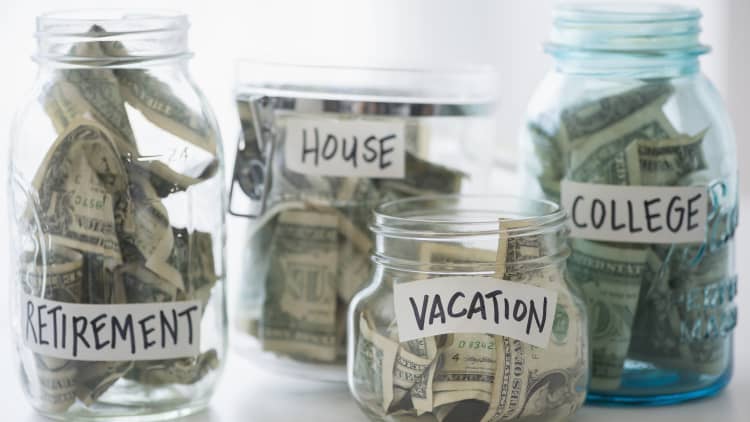A cashless society is nearly within reach.
After years of reluctance, Americans finally abandoned paper currency during the pandemic in favor of "tap and go" transactions and have now almost entirely embraced contactless and digital payment methods. Cashless payment volumes are only expected to increase going forward, according to a recent report by PwC.
However, there's still a hidden advantage to making purchases with cash, new research found, especially if you want to forget the transaction ever happened.
More from Personal Finance:
61% of Americans live paycheck to paycheck
How the Fed's quarter-point interest rate hike affects you
You may be overlooking important target date fund truths
Consumers pay with credit cards to remember and cash to forget, according to a paper by Szu-chi Huang, associate professor of marketing at Stanford Graduate School of Business.
When shoppers are motivated to forget a purchase because it is difficult to justify, they are more likely to use cash rather than a credit card, the analysis of more than 118,000 real-world purchases found, because cards create a "paper/electronic trail" that "aids memory retrieval."
Paying with cash also works well when it comes to hiding purchases from a partner or spouse, according to a separate report by Bankrate.com. "Cash is more anonymous," said Bankrate's credit card analyst Ted Rossman.

It's more common than you think: One-third of Americans admit they have committed some form of financial infidelity, according to another survey. Most often, they are spending more than they feel their significant other would be comfortable with. Others have a secret account or credit card or some sort of hidden debt.
The pros and cons of cash
On the upside, paying with cash can be a smart move for those trying to stick to a budget.
Most experts recommend using the envelope method, or "cash stuffing," to stay disciplined. In this case, spending money is divided up into envelopes representing your monthly expenses, such as groceries and gas. When the money in one envelope is spent, you're either done spending in that category for that month, or you need to borrow from another envelope, Rossman explained.
"Adhering to this approach keeps you from going into credit card debt," he said.
But paying with cash forgoes the rewards and protections that come with credit.
There are some grocery rewards cards that can earn you as much as 6% back at supermarkets, while a generic cash-back card will earn you 2%. Further, there are also federal mandates to protect you when you use your credit card if, for example, you never receive an item you've paid for.
And then there is the added security of contactless and digital payment methods, such as Apple Pay.
They are embedded with a near-field communication antenna that can be used for proximity payments via radio waves. There is also a dynamic cryptogram, or code, which is unique for each individual transaction.
This is similar to chip cards' smart technology, also known as EMV, which can process card transactions with embedded smart chips — except it is much faster.


